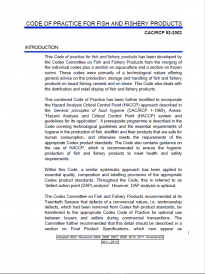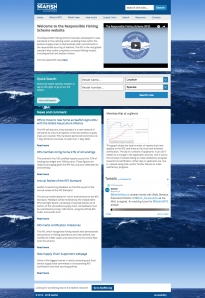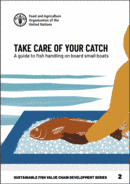Markets for On-board Handling in Large Scale Fisheries
An important incentive for fishers to implement good on-board practice that reduce food loss and waste (FLW), is to have a ready market that pays a higher price for better quality fish. This could be a market for fresh fish or for fish sold for processing. The key is that the buyer is prepared to pay a higher price for better quality. Unless such a demand exists, it will be difficult to convince fishers and gear owners to invest in and adopt better practices, which probably have cost implications.
Large scale fishing vessels are generally designed and equipped to be able to facilitate the handling of fish to high standards demanded by the Codex Code of Practice For Fish And Fishery Products and legislation that this has influenced worldwide. Being able to meet high food safety standards facilitates FLW reduction and prevention as well as market access and access to high value markets.
Some markets or buyers require that fish is caught according to a range of criteria. Major retailers for example can demand fish are caught according to the requirements of the Responsible Fishing Scheme, which includes sustainability, traceability as well as food safety (care of the catch) requirements. Hence, the market can be an important driver of the implementation of standards which inherently lead to a reduction in FLW.
Key Publications
Code of Practice for Fish and Fishery Products CAC/RCP 52-2003 Global standard that presents information on freezing and cold storage practices which aim to reduce spoilage and waste. | |
These guidelines have been developed to raise standards in the catching sector, enabling those within the seafood supply chain to demonstrate their commitment to the responsible sourcing of seafood. | |
Improving Fish Quality On-Board Fishing Vessels Includes basic guidance on how to handle fish on board to maximize quality on landing in order to make the most of your catch. |
More Resources
More Resources
31 October 2023














